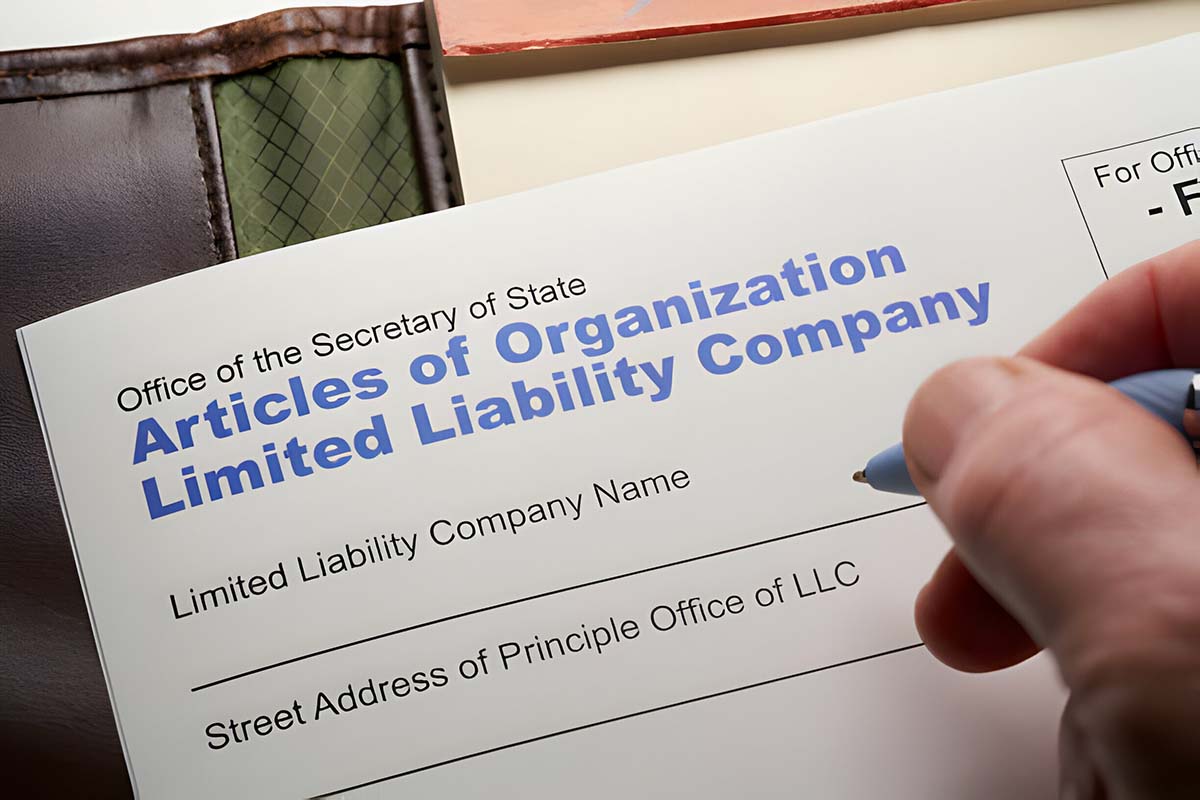Play all audios:
One of the best ways to position your business for long-term success is by selecting the right legal classification. There are a number of options to choose from, and no one-size-fits-all
solution. Having said that, for a majority of small and medium-sized businesses, the top option is registering as a Limited Liability Company, or LLC. There are a number of benefits to
forming an LLC, not least the administrative ease. Actually registering your LLC requires just a few simple forms, most notably the Articles of Organization. And for the most part, filling
out this form is simple and straightforward. There is one aspect of the form that throws some entrepreneurs for a loop. When completing your Articles of Organization, you’ll need to input
the duration of your LLC. Essentially, you need to indicate how long you plan to operate your business. That might feel like a difficult thing to predict, especially when there are legal
implications to your answer. So what should business owners know about denoting the duration of their LLC? AN LLC OVERVIEW First things first: What is an LLC, anyway? The LLC format has been
around since the 1970s, and since that time it has become a popular option for business owners across virtually all industries. When you establish your company as an LLC, you create a whole
new legal entity. In other words, the business is distinct from its owner, and thus you can keep your personal assets and liabilities separate from your business ones. This isn’t just a
semantic distinction. What it means is that you can protect your personal wealth from lawsuits and aggressive creditors. This is a benefit you won’t get from other legal structures, such as
Sole Proprietorships and Partnerships. THERE ARE PLENTY OF OTHER REASONS TO CHOOSE THE LLC FORMAT, TOO. FOR INSTANCE: – Your LLC can be taxed on either a pass-through or corporate basis,
whichever you deem to be more advantageous. – Having an LLC enhances your credibility, making it easier for you to earn the trust of lenders, investors, partners, and customers. – The
administrative burdens of an LLC are significantly lighter than those associated with a Corporation, making life easier for the entrepreneur. For these and so many other reasons, it’s worth
learning more about the steps required for forming an LLC, including key decisions about your LLC’s duration. HOW TO FORM AN LLC The requirements for forming an LLC vary a little from state
to state. So, the instructions for how to start an LLC in Wyoming might look a little different from the instructions in Nevada, in California, or in Delaware. With that said, here are some
basic guidelines for establishing an LLC (and for choosing the right duration). CHOOSE A NAME AND A REGISTERED AGENT First, you’ll need a name for your LLC. It’s important to think not just
in terms of marketing and branding, but also legal considerations. Basically, the legal name of your LLC can’t be in use by another LLC in your state. You’ll also want to choose a Registered
Agent. Every LLC is legally required to have a Registered Agent. This can be either a person or an institution. The job of the Registered Agent is to receive and maintain legal or tax
documents that the business receives. Your Registered Agent needs to have a physical mailing address within your state. A P.O. Box isn’t good enough. Note that most LLCs hire third-party
Registered Agent services, which usually run around $100 to $150 annually. FILE YOUR PAPERWORK There are two primary documents you’ll need for registering your LLC: An Operating Agreement
and Articles of Organization. The former functions as a charter, denoting how you’ll administer the company day to day. Having this document in place can help you prevent legal disputes down
the road. The Articles of Organization officially create your LLC. For this document, you’ll need to provide several pieces of information, including your business name, the names of any
partners you have, and the contact information for your Registered Agent. You’ll also need to denote the duration of your LLC. What does that mean, exactly? CHOOSING YOUR LLC DURATION By
default, most states assume that the duration of your LLC is “at will” or “perpetual,” unless you state otherwise. In other words, the assumption is that you’ll keep the LLC going until the
partners formally agree to dissolve it. However, it may be advantageous to set a specific duration for certain types of business, especially those that are temporary in nature. For instance,
when launching a summer pop-up shop, it might be wise to choose a three- or five-month duration, after which you’ll have the option to dissolve or keep the LLC going. GET YOUR FINANCES
STRAIGHT SOME FINAL TIPS FOR ESTABLISHING AN LLC: – Claim an Employer Identification Number (EIN) from the IRS, which will allow you to process payroll and to file your taxes. – Make sure
you have a business bank account that’s not connected to your personal accounts. ESTABLISH LONG-TERM SUCCESS WITH AN LLC Proceeding with an LLC can be an essential step toward great success
in your business. Use these guidelines to position your LLC for lasting impact. _AMANDA E. CLARK is a contributing writer to LLC University. She has appeared as a subject matter expert on
panels about content and social media marketing._

